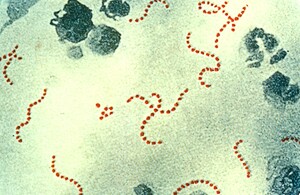Latest data on scarlet fever published
UKHSA has published the latest data on scarlet fever cases in England. Scarlet fever is circulating, as expected for this time of year.

There were 12,176 cases of scarlet fever notified between 1 January and 24 March 2024. This is higher than the average for the previous 5 years, but below the high levels seen for the same period in 2023 (15,933).
Dr Theresa Lamagni at UKHSA said:
Scarlet fever is a common childhood illness, although it can affect anyone of any age. If you suspect you or your child have scarlet fever – with symptoms such as fever, a sandpapery rash, sore throat and swollen tonsils - contact your GP practice or NHS111 if your GP is not available. Scarlet fever is usually mild and can be treated with antibiotics – these will help reduce the risk of complications and limit spread of the infection to others.
To avoid the infection spreading, it’s important to wash your hands regularly and thoroughly and keep your home well-ventilated. If you or your child has been diagnosed with scarlet fever, you should stay away from nursery, school or work for 24 hours after you start taking antibiotics. This will help stop the infection spreading to other people. As with other infections, you should also avoid visiting vulnerable people whilst you’re feeling unwell.
In very rare cases, the bacteria that causes scarlet fever can cause a more serious infection, called invasive group A strep. Case numbers are in line with expected numbers given the time of year.
Call 999 or go to A&E if:
- your child is having difficulty breathing – they may make grunting noises, or you may notice their tummy sucking under their ribs
- there are pauses when your child breathes
- your child’s skin, tongue or lips are blue or grey – on black or brown skin this may be easier to see on the palms of the hands or soles of the feet
- your child is floppy and will not wake up or stay awake
UK Health Security Agency press office
10 South Colonnade
London
E14 4PU